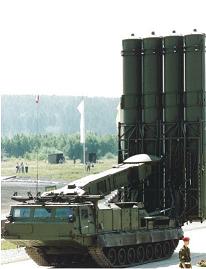
- new model centrifuges
TEHRAN, Iran’s nuclear chief said Friday the country has started making more efficient centrifuge models that it plans to put in use by early 2011 – a statement that underscores Tehran’s defiance and adds to international concerns over its nuclear ambitions.The official, Vice President Ali Akbar Salehi, said Iranian scientists are still testing the more advanced models before they will become operational at the country’s enrichment facilities.Tehran has been saying since April that it is building more advanced centrifuges capable of enriching uranium with higher efficiency and precision, but Salehi’s remarks were the first indication of a timeline when the new models could become operational.
The new centrifuge models will be able to enrich uranium much faster than the old ones – which would add to growing concerns in the West because they would allow Tehran to accelerate the pace of its program. That would mean Iran could amass more material in a shorter space of time that could be turned into the fissile core of missiles, should Tehran choose to do so.
Iran’s uranium enrichment is a major concern to the international community, worried that the program masks efforts to make a nuclear weapon. Tehran insists its enrichment work is peaceful and only meant to generate electricity, not make an atomic bomb.
Iran has threatened to expand its enrichment program tenfold, even while rejecting a plan brokered by the U.N. nuclear watchdog agency to supply fuel for Iran’s research reactor if Tehran exports most of its enriched stockpile. The U.N. plan would leave Iran – at least temporarily – without enough uranium to produce a bomb.
Centrifuges are machines used to enrich uranium – a technology that can produce fuel for power plants or materials for a nuclear weapon. Uranium enriched to low level is used to produce fuel but further enrichment makes it suitable for use in building nuclear arms.
“We are currently producing new generation of centrifuges named IR3 and IR4,” Salehi told the semiofficial Fars news agency. “We hope to use them by early 2011 after resolving problems and defects.”He did not elaborate on the technical details or the difference between various centrifuge types.However, Salehi added: “We are not in a rush to enter the industrial-scale production stage.”
The new centrifuges would likely replace the decades-old P-1 centrifuges, once acquired on the black market and in use at Iran’s main uranium enrichment facility in Natanz, central Iran.
Iran has said the new centrifuges would also be installed at Iran’s recently revealed secret uranium enrichment facility. The plant is still under construction at Fordo, near the holy city of Qom.
Salehi said that more than 6,000 centrifuges are currently enriching uranium – 2,000 more than the figure mentioned in a November report by the U.N. watchdog, the Vienna-based International Atomic Energy Agency.
The IAEA has reported that it is watching Iran’s efforts to improve its centrifuges.Iran says it will install more than 50,000 centrifuges at Natanz, but currently they have installed fewer than 9,000, so there could easily be room for more advanced models in the future, a Vienna nuclear expert said. The expert spoke on condition of anonymity because of the sensitivity of the issue.
Iranian officials have claimed that most parts for the new centrifuges are made domestically and others have been imported – a sign that Iran was able to get around U.N. sanctions imposed on the country for its refusal to suspend uranium enrichment.Iran’s defiance has not wavered amid recent signals of possible more U.N. sanctions over its enrichment. Salehi said Friday such new sanctions won’t stop Iran from developing its nuclear program.
“We don’t welcome new (U.N. Security Council) resolutions,” he told ISNA, another semiofficial news agency. “But resolutions won’t stop us in any field, including the nuclear.”
 MOSCOW The new U.N. sanctions prevent Russia from delivering S-300 air-defense missiles to Iran, a Kremlin official said Friday, in a reversal of the position announced by Russia’s Foreign Ministry the day before.The Kremlin statement was sure to please Israel and the United States, which have long urged Russia not to supply the powerful missile system. Russia signed a deal to sell the missiles in 2007, but has delayed their delivery.
MOSCOW The new U.N. sanctions prevent Russia from delivering S-300 air-defense missiles to Iran, a Kremlin official said Friday, in a reversal of the position announced by Russia’s Foreign Ministry the day before.The Kremlin statement was sure to please Israel and the United States, which have long urged Russia not to supply the powerful missile system. Russia signed a deal to sell the missiles in 2007, but has delayed their delivery.




